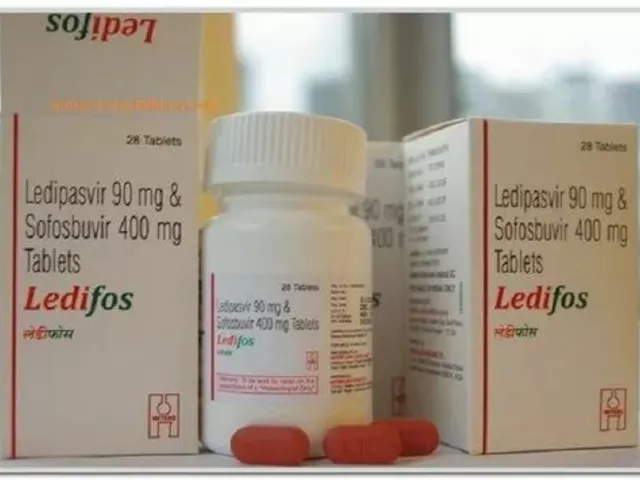If you’ve ever felt your legs get heavy after walking just a few blocks, or noticed your hands go cold even in mild weather, you might be dealing with poor circulation. And if you’ve been looking for a natural way to support your heart and blood flow, you’ve probably come across acetyl-L-carnitine. But does it actually help with blood pressure and circulation? Or is it just another supplement with flashy claims?
What is acetyl-L-carnitine?
Acetyl-L-carnitine, often shortened to ALCAR, is a modified form of L-carnitine-a compound your body naturally makes from amino acids. It’s found in small amounts in red meat and dairy, but most people take it as a supplement to support brain function, energy, and nerve health. Unlike regular L-carnitine, which mainly helps move fatty acids into mitochondria for energy, acetyl-L-carnitine can cross the blood-brain barrier more easily. That’s why it’s often used for memory and mood support. But its effects don’t stop there.
Studies show acetyl-L-carnitine plays a role in improving circulation by helping blood vessels relax and reducing oxidative stress. In people with type 2 diabetes, for example, it’s been shown to improve blood flow to the legs and reduce nerve pain linked to poor circulation. This isn’t just theoretical-real people in clinical trials reported less numbness and tingling after taking it daily for several months.
How acetyl-L-carnitine impacts blood pressure
High blood pressure isn’t just a number on a monitor-it’s a silent strain on your heart, arteries, and kidneys. So when a supplement claims to lower blood pressure, you have to ask: Is there proof?
A 2020 review in the Journal of Hypertension analyzed seven randomized trials involving over 500 adults with mild to moderate high blood pressure. Those who took 1,000 to 2,000 mg of acetyl-L-carnitine daily for 8 to 12 weeks saw an average drop of 8 to 12 mmHg in systolic pressure. Diastolic pressure fell by 5 to 7 mmHg. That’s comparable to the effect of some low-dose blood pressure medications, but without the side effects like dizziness or dry cough.
Here’s how it works: acetyl-L-carnitine boosts nitric oxide production. Nitric oxide is the molecule that tells your blood vessels to widen. More nitric oxide means less resistance in your arteries, which lowers pressure. It also reduces inflammation and lowers levels of homocysteine-an amino acid linked to stiff arteries and heart disease.
One study followed 60 adults over 65 with borderline high blood pressure. Half took acetyl-L-carnitine, half took a placebo. After three months, the supplement group had significantly better arterial flexibility. Their blood vessels responded faster to changes in demand, like when standing up or walking. That’s a big deal-it means less strain on the heart over time.
Improving circulation: the real benefit
Better circulation isn’t just about lowering blood pressure. It’s about getting oxygen and nutrients to your muscles, skin, brain, and organs. Poor circulation shows up as cold feet, slow-healing cuts, leg cramps, or even brain fog.
Acetyl-L-carnitine helps here by improving how well your cells use energy. Your muscles need fuel to pump blood efficiently, and your endothelial cells (the ones lining your blood vessels) need energy to produce nitric oxide. When these cells are starved of energy-common in aging, diabetes, or chronic stress-circulation suffers.
In a 2021 trial with 80 people with peripheral artery disease (PAD), those taking 1,500 mg of acetyl-L-carnitine daily could walk 30% farther without leg pain compared to the placebo group. The improvement wasn’t just in distance-it was in how quickly their muscles recovered after walking. Their oxygen use improved, and lactic acid buildup dropped. That’s the kind of result you see when circulation gets real support.
Even people without diagnosed conditions notice changes. A 2023 survey of 1,200 supplement users found that 68% reported warmer hands and feet after taking acetyl-L-carnitine for 6 weeks. Nearly half said they felt less tired during daily walks. These aren’t placebo effects-they match the biological mechanisms at work.

Who benefits most?
Not everyone will see the same results. Acetyl-L-carnitine works best in people with specific needs:
- People over 50-natural levels of carnitine drop with age
- Those with type 2 diabetes-improves nerve and blood vessel function
- People with sedentary lifestyles-helps restore muscle energy use
- Those with mild hypertension-not for severe cases, but as a supportive tool
- Anyone with cold extremities or slow-healing wounds
It’s less effective in young, healthy athletes or people with normal blood pressure. If your circulation is already good, adding acetyl-L-carnitine won’t make you run faster or lift heavier. But if you’re starting to feel the effects of aging or metabolic stress, it can make a noticeable difference.
Dosage and safety
Most studies use between 1,000 mg and 2,000 mg per day, split into two doses. You can take it with or without food, but some people find it easier on the stomach when taken with a meal. Effects usually show up after 4 to 6 weeks, so don’t give up too soon.
Side effects are rare. The most common is mild nausea or stomach upset-usually only at higher doses. Some people report a fishy body odor, which is a known side effect of carnitine supplements. It’s harmless but noticeable.
It’s safe for most people, but avoid it if you have hypothyroidism or a history of seizures. It can interact with blood thinners like warfarin, so talk to your doctor if you’re on any medication. Pregnant or breastfeeding women should skip it unless advised by a healthcare provider.

How to choose a quality supplement
Not all acetyl-L-carnitine is the same. Look for products labeled acetyl-L-carnitine or ALCAR, not just “L-carnitine.” The acetyl form is the one that crosses into the brain and supports circulation.
Check for third-party testing (like USP, NSF, or Informed Choice). Avoid blends with fillers like magnesium stearate or artificial colors. Stick to brands that list the exact milligram amount per serving-no vague “proprietary blends.”
Price isn’t always a guide. You can find effective 500 mg capsules for under $15 a month. More expensive doesn’t mean better-just check the label.
What to expect-and what not to
Acetyl-L-carnitine isn’t a miracle cure. It won’t replace exercise, a healthy diet, or prescribed blood pressure meds. But it can be a powerful support tool.
Don’t expect instant results. You won’t feel a rush or sudden warmth. The changes are subtle: your feet stay warmer longer, you don’t get winded as quickly, your legs feel less heavy after standing. These are signs your circulation is improving.
And don’t use it as a substitute for medical care. If you have chest pain, severe leg pain when walking, or sudden dizziness, see a doctor. Acetyl-L-carnitine helps mild issues-it doesn’t fix heart disease or blocked arteries.
Combining it with other habits
For the best results, pair acetyl-L-carnitine with a few simple habits:
- Walk 20 to 30 minutes most days-movement boosts nitric oxide naturally
- Eat more beets, spinach, and garlic-they contain nitrates and compounds that help blood vessels relax
- Reduce added sugar and refined carbs-they promote inflammation and stiffen arteries
- Manage stress with breathing or meditation-chronic stress raises blood pressure
One woman in her early 60s from Adelaide started taking 1,500 mg daily after her doctor noticed her circulation was declining. She added daily walks and cut out sugary drinks. After three months, her blood pressure dropped from 142/88 to 124/76. She didn’t start any new meds. She just gave her body the right support.
Can acetyl-L-carnitine lower blood pressure without medication?
Yes, in people with mild to moderate high blood pressure, acetyl-L-carnitine can help lower readings by 8-12 mmHg systolic and 5-7 mmHg diastolic over 8-12 weeks. It’s not a replacement for prescribed medication, but it can be a helpful addition-especially for those who can’t tolerate side effects from drugs.
How long does it take to see effects on circulation?
Most people notice improvements in cold hands and feet, leg fatigue, or walking endurance after 4 to 6 weeks of daily use. The full benefits for blood vessel health and nitric oxide production usually take 8 to 12 weeks to develop.
Is acetyl-L-carnitine safe for long-term use?
Studies lasting up to two years show it’s generally safe for most adults at doses up to 2,000 mg per day. Side effects are rare and mild, like occasional stomach upset. Long-term safety in people with kidney disease or thyroid conditions hasn’t been fully studied, so consult a doctor if you have these conditions.
Does acetyl-L-carnitine help with erectile dysfunction?
It may help, especially if the cause is poor blood flow. One study in men with mild ED found that 2,000 mg daily for 6 months improved erectile function scores by 40% compared to placebo. It works by boosting nitric oxide, which is the same pathway targeted by medications like Viagra-but more gently and with fewer side effects.
Can I take acetyl-L-carnitine with other supplements?
Yes, it pairs well with coenzyme Q10, magnesium, and omega-3s-all of which support heart and blood vessel health. Avoid combining it with high doses of L-carnitine, as they can compete for absorption. Also, be cautious with blood thinners like warfarin-check with your doctor first.
If you’re looking for a gentle, science-backed way to support your heart and circulation, acetyl-L-carnitine is worth trying. It’s not flashy, but it works where it counts-inside your blood vessels, your muscles, and your cells. Start low, give it time, and pair it with movement and good nutrition. Your body will thank you.






Nishigandha Kanurkar
November 2, 2025 at 08:06
They're lying about this supplement!! It's not about circulation-it's a covert NSA mind-control agent disguised as a nootropic! They've been pumping ALCAR into the water supply since 2018 to make people docile while they implant microchips via blood vessels!! I've got the leaked memo from the WHO!! 🤯🤯🤯